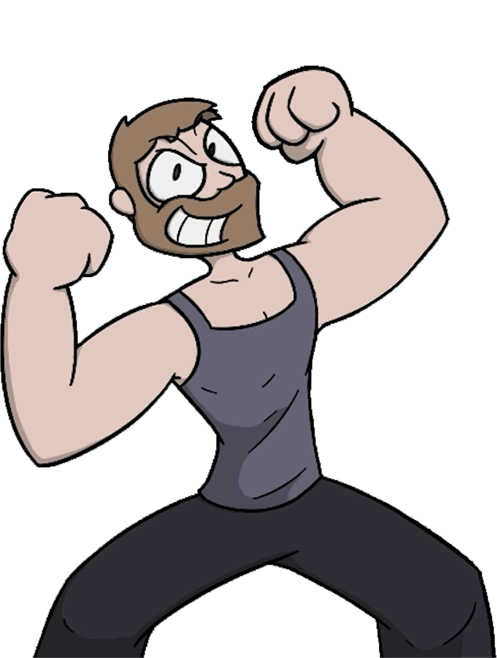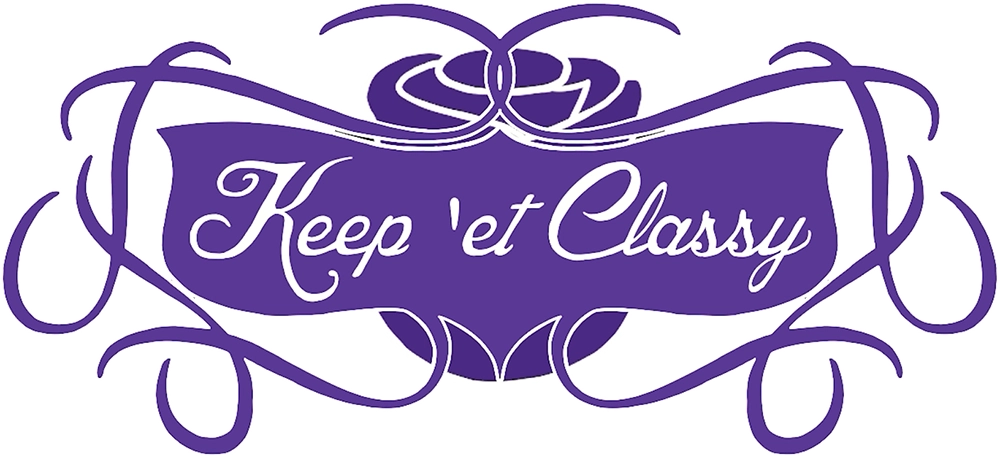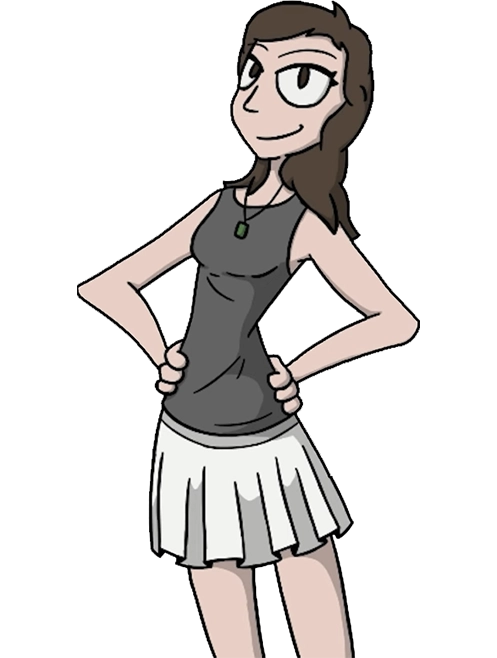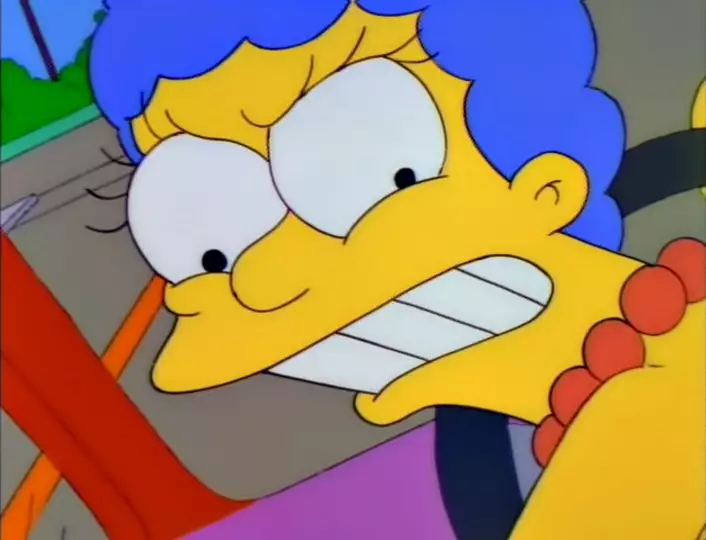My Recollection.
Alley balls. GET… OUT. It’s not like we got so attached to her.
Staying at other people’s houses is always a strange experience for a child as it’s their first look at different forms of normal. This will come as a shock as the defining trait of normalcy is how it is common, near universal, so finding out your normal isn’t the normal is a twofold blow. There are common elements to the outer suburbs, though, that extend the life of this perceived normalcy, often into adulthood, when one finds out that all the things you grew up with are bizarre stories.
Outsiders have a few stereotypical examples, things like the old car up on cinderblocks, but I never really saw any of those in my neighbourhood. Cars were never disassembled, even in some naïve attempt to repair it, because then you were without a car. The cars in my neighbourhood never got up onto cinderblocks because they were driven around on bald tyres with herniated tubes, with missing windows or shattered windshields, and engines that screamed like dieselpunk demons.
Dead fridges were a common sight. Tombstones to cold food we were warned not to play with, as each parent came from a time when fridges locked and were the only available toy. Every kid tried to make a boat out of one only to wind up like Jesse Custer, if our parents were to be believed. To us, they were just stinking obelisks, with seldom any value.
Seldom because they could occasionally be used in a manner every videogame would eventually catch up to, climbing tools. Shove one a little one way or drag one another, and suddenly a whole puzzle we didn’t know existed got solved. A friend’s house two doors up had one in the backyard that we dragged up to the back stoop to use as a stepladder to the roof. Being on the roof when you’re ten is exciting when your world is tiny and pointless.
We were over there one evening because Other Steven’s parents weren’t the type to be too concerned with children on the roof, so up we went. It was a nice spot. It was the top of the little hill and directly opposite the street leading to it, so it afforded a view that was more than a suburban ten-year-old would usually get. As myself, Other Steven, his younger sister, and my younger brother were getting down from the roof to eat goulash, we encountered another one of the common elements.
Other Steven had two dogs that looked kind of like Pomeranians, one orange and one black. For yappy dogs, they were largely inoffensive, though we called the black one Humpy (as opposed to his real name, Harley) because he’d take any opportunity he could to rub his weird dick on you. Dogs mean dog things like food and bowls, in the outer suburbs, these would take the form of a vast, unattended sack of dog food and a big, unattended bowl of water. On the back stoop, near the fridge, was one of these bowls of water.
Well, I say water, but neglect had done to it what it did to everything out there and transformed into a sickening parody of its name. What sat by the back door was a vile puddle of fluid, bits of bread, vegetables, dog biscuits, gecko corpses, and once writhing maggots. It barely smelled, but what did escape the stagnant seal of viscous tension was a threat of such pure malice even the dogs didn’t dare disturb it.
The gutters of an Australian suburban roof are a cruel deception to bored children because they look like perfect handholds yet can seldom take even a child’s weight. Using them to get up was out of the question and even descending necessitated they bear your full weight otherwise you were less climbing off a roof and more leaping from one. The fridge replaced the guttering, allowing us to step down from roof to it and then down from it to the stoop. We’d all descended after a particularly enlightening evening roof-sit. All but my brother.
As he moved from gutter to fridge, his grip went a little shallow and caught the door of the freezer section, not the section itself. It swung open as he let go of the gutter and flung him right into the foetid bowl, an arc of the mucoid porridge covered him from shoulder to foot.
There are moments of severity that stop even the malice of outer suburban little shits and this was one of them. The smell was a wall, a dimensional rift of shifting odours, each a foul masterpiece woven with its brothers into a symphony. My brother slowly stood with his arms out and began a silent walk back to the house, slowly so as not to disturb any more of the material. We followed from about four metres away in stunned silence, laughter only breaking out when we heard my mother shout, “Oh GOD!” when he walked in the front door. He still gets a 100 metre stare when I bring it up.
The Episode.
Season three of The Simpsons is a season where its identity as a show began settling into place. The art style coagulates into the familiar; the voices don’t change much beyond here; and there have been focal episodes that flesh out the family and greater lore of Springfield. The vulnerable ten-year-old seen in stories like Bart Gets an F, isn’t in this season. Bart is now an amalgam of adult’s attitudes towards youth, foolishness mistook for confidence, and confidence mistook for character, which leaves Bart invulnerable to emotion and so beyond the genuine. Lisa has lost her childishness after witnessing failures of authority, both parental and state, but has gained a serialised maturity in its place. Homer’s brief glimpses of humanity in earlier seasons are, like Bart’s, drowned under a sea of comic necessity. And then there’s Marge.
Of the past 49 episodes (Homer Alone is the 50th) only two are about Marge. Itchy & Scratchy & Marge is the first, so it extends from already familiar elements: Marge as the mother in her family and Marge as the busybody activist mother, a prominent media fixture in the period. Each of these is a good starting point, but little else, as they are common archetypes. Conversely, Brush with Greatness actually created something more unique to Marge as an individual separate from either the private mother or the extended public mother of the activist. Marge’s dream of being an artist, how it was crushed and rekindled, is something that exists in her beyond the episode’s confines, popping up again as informative characterisation and even directly referenced narrative elements.
Other episodes that have featured Marge have been episodes that focus on Marge as part of a couple with Homer, and all but one has made Homer the agent and Marge the aggrieved narrative function. Homer’s Night Out and The War of the Simpsons are examples of this. Each is about the relationship, but each is about the relationship via Homer. It’s his faults that cause the discord, his lessons that need to be learned, and his great actions that need to resolve the conflict. Marge was just the digital clock ticking down while Homer fiddled with the wires.
Life on the Fast Lane is the single exception. The impetus of the narrative comes from Homer being inconsiderate, but the episode focuses on Marge’s perspective. There is no wild Homeric act that rescues the marriage. Homer spends the episode adrift in his own inadequacy and fear, unable to think of a solution, and the solution is never actually seen. Marge makes her choice offscreen, a beautiful decision that both covers the inevitable audience questions as to why, and strips Homer of any focus. This was the couple, but the power was Marge’s.
This lack of focus is an inevitable result of a variety of factors working together. Marge’s age and historical placement put her in a situation where her personality getting trampled out of her by a fundamentally misogynistic society fits her narrative world. The show’s historical placement puts it at the start of a subversive period in television, but The Simpsons is one so early that it still requires the tropes it’s subverting as dominant features. As a comedy, it has to focus on fools and buffoons creating outlandish situations and these situations need someone to disapprove in order to be structured as wrong within an animated reality. Each of these factors conspires to push Marge away from having any interesting personality traits herself, prevent her from being able to push back against this within the trope structure of her universe, and then locking her into the role of disapproving square amidst the funny chaos. The result is a dull character nobody wants to write for.
This is a reality that David Stern (brother to Wet Bandit Daniel Stern) noticed, so he opted to write a story with both a focus on Marge and a focus on her with this reality in mind. He didn’t really succeed.
I’ve often described Bob from Bob’s Burgers as a normal person who got stuck with a sitcom family by mistake, part of being the Normal Character to suffer the madness, and this largely applies to Marge, too. The opening joke, Bart and Homer doing a Road Runner bit, works not just as a gag, but as a fantastic way of establishing Marge’s perspective. This is what her husband and son appear like to her, this is what an animated sitcom family looks like to a normal person, a cartoonish whir of destruction she’s left to deal with. This continues in the next scene, as the fun characters merge into a discordant noise that drills into Marge’s sanity. The almost imperceptible delay between Marge’s tragic attempt at defiance before cleaning the broken lamp, and the discordant noise’s inability to follow one simple instruction shift the audience’s understanding. The comedy we laugh at has consequences on the people who aren’t part of it.
Her family misbehave and break things. They ignore her requests to make fulfilling their requests easier. They dismiss her knowledge and miss the bus. They inconsiderately burden her. And, after all this, they take her for granted. Marge’s explosion isn’t just an inevitability, by the time she snaps, the audience is ready to snap with her.
But setup is easy; resolution is hard. Marge’s breaking point largely ends her story because the problems aren’t hers to solve. Her time at Rancho Relaxo serves as the opposite of Bart pain, the reward we need to see her get to drain the universe of its inherent unfairness, but that’s it. How the supposedly struggling family affords the trip or any deeper developments from Marge aren’t things the episode chooses to think about, largely because wringing humour from them would have been a bigger challenge. Instead we get the comedy of punishments and Homer being a moron.
Bart and Lisa are punished, and this is the better part of the episode. The kids are jerks, Bart certainly more so, and watching them suffer through staying with Patti and Selma is exactly the right level of torment. It’s the grotesque social pain of having to spend time with people you don’t want to. The weird foods, odd habits, uncomfortably strange beds, and visceral overfamiliarity of extended family make their pain the kind we can revel in.
The Homer sequence, though, drags the whole show down.
The idiot dad trope developed both from a comic inversion of the very early “father knows best” idea, and because it’s funnier to watch men suffer. It’s a trope that largely won’t die and persists even in shows like Bob’s Burgers that use a direct inversion of it as opposed to an altogether different structure (the mothers in “father knows best” weren’t wacky characters, they were seldom characters at all). It’s like junk food in that it’s hugely popular and even the people who complain still eat it from time to time. Most of Homer is this trope, and this episode could have ridden it out well had they stuck with watching him struggle with the tasks Marge performs constantly.
The choice to have Maggie go missing is a kind of baffling one given the necessary emotional response to that would have crippled the tone of the show, and the alternative we got was worse. Homer loses a baby. A fucking baby. A ten-year-old goes missing for a day and people worry, and a ten-year-old can do basic things like not die in a puddle. Maggie, like her siblings, has a kind of flexible maturity that lets her do things and present characteristics beyond her age, but none of that erases the fact that she is, within the universe, still a baby. Her comic qualities and character could have been put to use finding ways to torture Homer, instead we wind up with a scene where a man tries to make up excuses for losing their fucking baby.
Writing for women and housewives isn’t hard; writing for Marge is. The template the show uses leads to a template for Marge that is bereft of any real narrative hooks. This lack of hooks means the writers are less likely to try with her which results in less characteristics and still fewer hooks. Fifty episodes in and the show attempts a whole third episode about her, only to run into this reality. Marge’s primary character moments come as emotional breakdowns which can only ever repeat as they ram pointlessly into the wall of unchanging sitcom reality, and that’s not much to write about.
What else can Homer Alone do with Marge relaxing? It’s not her fault her family are shit, so like Homer’s Night Out and The War of the Simpsons it’s incumbent on the other characters to create the narrative. By itself, this could work, punishing the kids and torturing Homer to lead them to the show’s conclusion of demonstrating appreciation for Marge and all she does, but that’s still not fixing the problem of Marge, and Homer’s section of the story is catastrophically stupid.
Marge is a function with a character screaming to get out, which is a reality for many women of her generation. The reality she is trapped in can manage few ways to express this as most would require serialised events, leaving her with episodes that fit a tight mould: breakdown or clumsily pursue a stifled dream. Even the episode where she finally breaks isn’t named after her.
Yours in having 6 months of maternity leave he was never going to use anyway, Gabriel.
Jokes, Lines, and Stray Thoughts.
Beyond contributing perfectly to Marge’s perspective, the Road Runner opening is a great bit.
The fade to the scene with Maggie after Marge cleans the broken lamp is odd, though. Fades are to suggest more time passing than a cut does, but in this instance I think it was to save time by getting past the detail of the clean. Better ways to do this would be to cut to her completing the task, or some other sign of such.
The Maggie scene contrasts well with Homer’s later and this would have been a better way to fill out the episode with meaningful material rather than the losing Maggie subplot.
Maggie being the only real interaction for Marge in these opening moments further highlights the isolation a housebound mother can feel. Her family aren’t her family until later in the piece, for now they are a three-headed noise monster and the only one who listens is an infant.
Homer’s late entry to the cacophony is a great bit. Timed to let viewers think the scene will be about annoying children which paints Homer as similar, and with the added bonus of a sudden appearance.
Marge’s face in this scene is classic. The Simpsons uses very few asides, characters looking to the camera, and this is a good thing because unless the camera is a diegetic one, like in The Office, then the aside is just a lazy piece of meta bullshit. But here she isn’t looking at the camera or viewer, but through them. It’s a glare of anger at the universe itself, and we are just unfortunate enough to be in the way. She fills one side of the shot, and her assembled torture fill the other but deeper into the less detailed background. It’s a beautiful piece of work.

“DOUBLE BALONEY. DOUBLE BALONEY”
Homer’s such a bitch here. Just dig the bottle cap out with a fucking screwdriver. A buddy used to work at a bowling alley and it’s what he did.
His total inability to see that this is a request too far really makes him a dick. The mirrored shot from the kitchen one inverts the effect of its sister. Homer with his back to us, filling the frame and beyond, Marge now staring at the universe in a different direction. This is us as the burden and we feel guilty for it.

The “every little thing” of Marge’s day is wonderfully done. The kids missing the bus. Bart being a piece of shit. Maggie throwing things from the trolley and breaking the third. Driving across town to flush the ball.
Picture of Jacques up in Nick’s on the other side of town.
The ball whacking Marge in the thigh as she walks away is another lovely detail.
The leadup to Marge’s final break continues the run of excellence. The radio ad with the jackhammers is obvious, but the shift to the prank call is great. There’s an indirectness to it that syncs with the tension created by Maggie pulling too hard on her bottle. It’s the equivalent of the sea rushing out when a giant wave approaches, a moment of innocuous calm that heralds all hell breaking loose.
Some great freeze frames as Marge loses her shit.


It’s the undoing that makes what happened the step too far, all that and the dry cleaning needs to be done again.
Our first look at Arnie Pye! Pye had an earlier voiced appearance under a different name in Some Enchanted Evening. I consider this his first appearance as, a bit like Lindsey Naegle, the first one was a kind of proto-form, even going by the name Bill.
The falling bagel is very funny for the attention it gets.
Things like the bagel, Wiggum’s total lack of ideas, and Otto getting sun, the mafia guy, and Krusty are good ways to integrate a kind of joke montage organically into a scene. It also gives the sense of this being an occurrence that affects the whole town.
Speaking of Wiggum, blue hair is back.
The combative relationship between Artie and Kent gets its first look here. Seems to be the start of it, too.
This must have been before Kent joined whatever group taught him that women acting out was in Revelations.
Homer copping some punishment by basically calling himself out in front of Lenny and Carl is much deserved.
Actual great spot for the ad break as it covers Homer’s travel time.
The distressed mother tape is good. There should be more informative police tapes like that.
“Well, that explains a lot”
The commentary mentions having Homer’s face covered by the bullhorn. It’s a noticeable choice and, while his puppy dog eyes are somewhat visible, shifts the bulk of his apology to his words. It’s a good way to focus the moment on Homer as the thinking adult and not Homer as the imbecile animal who pouts when he’s too dumb to understand how he upsets people. This really comes across in lines like “I can tell something’s bothering you”, which is about the most real empathy we see from him.
“…snuggle?”
There are a lot of little logic gaps in this episode, like how the family affords the vacation for Marge, but this next sequence of Quimby and the chick vote is funny, sets up the backroom element of Springfield’s government, and a good cover for the way the bridge fiasco blows over.
“You can’t spell Relaxo, without relax.”
“Let’s face it, I’m no day at the beach either.” There’s a degree to which self-awareness is worse. Like me punching you while saying, “I’m sorry, I had a very rough upbringing.”
The lingering scene of Marge staring into the night after she swears she’s coming back is the kind of beautiful subtlety you don’t see much anymore. It’s the kind of joke that may not even be one.

The cut to Bart and Lisa in the car is wonderful. Their suffering is so deserved that we can wallow in it like pigs.

Patty and Selma looking at Maggie is another goodun.

“Wish I’d thought-a that”
“Got her on the first bounce” is a top-quality dad sentence, and Homer’s smug look ices the cake perfectly.
Asking how to use the pressure cooker as you run alongside a train is a perfectly balanced piece of Homer dumb.
Homer and Maggie frowning at the same time is a nice touch that would mean more if this element of the episode better tied in to anything else. Their relationship would be a good thing to explore at this point in the series, instead it’s reduced to a particularly stupid joke.
The pattern for the rest of the episode is a series of moments depicting Marge relaxing, Homer struggling, and the kids suffering. There’s little narrative save the execrable lost baby thing.
Keeping the baby in the crib while you’re just sitting around strikes me as odd. I’d just have the thing in a laundry basket next to me while I play videogames, then I’m parenting AND ignoring it. Genius.
Homer alone with his baby is such a good source of him as a genuine human being that it’s a shame it doesn’t happen much. A lot of these moments, like him attempting to explain the situation, are a great blend of jokes and meaning. It’s a shame these threads weren’t better tied together.
Pretty much every scene of Bart and Lisa with their aunts is great. The cut to mutual sad looks at the cartoon tongue sandwiches, Pattie’s statement reinforcing the horrible reality, and Selma’s list of even worse beverages. Other people live weird lives.

“I’m aware of the time” is a great piece of dry Lisa. “You think you know fear? Well I’ve seen them naked” is a sharp uptick in emotional extremity and grossness making it a great scene cap.
The changing voice and sad movie selection at Rancho Relaxo is a favourite joke template.
Homer eating the baby food and realising he’s lying on his child are funny, and the scene of him attempting to put on an old manual nappy is a great contrast to the earlier one. With some thought, the first half of the episode could have shown more of Marge’s day-to-day struggles which could have been contrasted with Homer’s comic struggling, which could lead to actually seeing him learning his lesson.
Idiots being attacked by animals is comedy gold. See also: Bill being repeatedly mauled by Dale’s falcon in King of the Hill.
A big part of these moments is the brief bit of tension before the pop. Homer’s eyes moving as he realises what’s about to happen, without moving anything else, sets up what’s going to happen next without ruining the reaction. Castellaneta’s great work of pained almost words sells the pain as bad but not horrendous, while his disappearance behind the table and Maggie’s genuine but circumstantially near sarcastic clapping all act as multipliers for this hilarious moment. Some fantastic frames in it, too.



Most of Marge’s moments are sorta dull by comparison.
“Someone smells stinky”
Cutting around from Homer and Barney during the day to Bart and Lisa at night (it’s not the noon bed time because Pattie and Selma are there following that evening’s MacGuyver) is the kind of discordance you see in a montage and not something that’s supposed to have meaningful connection.
Homer was going to have a beer bottle in his hand while he was singing to Maggie, but they thought it a yard too far. As it is, the idea of him singing himself to sleep is a little gentler, but the wrinkled hair suggests a bit of intoxication. It’s the softer balance the show’s tone needs.
Hey, speaking of tone, a lost baby! Imagine a baby, one between crawling and walking, now imagine that baby missing. Imagine the absolute batshit emotional stress of that reality. Now imagine none of that happening and Homer making up excuses for the MISSING BABY. This whole idea should have been ditched.
A Home Alone gag and the source of the episode title. Whee! I have the suspicion that this whole joke is the reason we get a lost Maggie sequence.

Barney on the conch is more familiar than I wish it were.
Homer’s initial panic is a bit more accurate. Had Maggie been downstairs or in the attic, anything that prevents it from being a police issue, would have made it more effectively comical. Like when Maggie sneaks away from Bart and drives the car, that’s fucked up, but the whole thing is tucked into a 20 second vignette full of jokes. It’s never serious.
“I can’t even put a bag over my head”
The phone hold song jokes are always a nice touch. Never a giant laugh but they’re not meant to be.
Marge is a tequila gal. Herradura Blanco was my favourite back when I was still slowly killing myself.
I can’t tell if the scene where Marge lowers her whole hair length into the bath tub, only to have her scalp start where the peak of the hair ended as she emerges, is specifically a joke or an animation flub. Kind of leaning toward the former.
Homer looking around after being told not to steal light bulbs is a good little gag.
The shot of the kids with Homer is great.

“Time to rub aunt Pattie’s feet”
Another proto form of the Squeaky Voiced Teen, not quite himself yet, and the Just Stamp the Ticket man.
Again, if you want a lost baby to be funny, don’t show me a man sobbing against a fridge in his torn apart home.

“It’s not like we got so attached to her” is a good example of the critical idea that something bad can have something good in it. It’s a very funny line, regardless of the situation.
They found the baby, got the kids, and now they appreciate Marge again for, oh, a day or two.





5 replies to Homer Alone
SteelCladGamer on 28th March 202028 Mar 20 said:
Didn't they reuse the "Homer can't look after himself" story at least 3 more times? At this point I wonder what Homer brings to the relationship; apart from income, he's useless at best.
Gabriel on 28th March 202028 Mar 20 said:
Yeah, the idiot husband thing is essentially core to Homer and it seldom, if really ever, gets fixed. The idea would be to balance it out with episodes where he's a bit more competent or the problems he causes a little more universal, but that never really happens. It's a side-effect of the show genre, we notice it building up but the series is built around the episodes being more closed systems, and the characters are more broad tropes than nuanced individuals, so comic archetype gets priority over balance.
Magnumweight on 28th March 202028 Mar 20 said:
I'd have said this episode reminds me of Baby's Day Out, but that movie was released 2 years later.
Gabriel on 28th March 202028 Mar 20 said:
The concept is very old. Popeye cartoons had a similar routine with Swee'Pea and those things go back to the thirties.
Magnumweight on 28th March 202028 Mar 20 said:
It's funny, now that you mentioned it, I DO remember Sweet Pea, and the child mouse from Tom and Jerry, and another from the Looney Tunes.
Anyhow, I do enjoy this episode, I will say that it falls a little after the stellar first half but I think of it as an evening out more than anything.
Also, I just now noticed that Marge and Maggie have very similar names and I feel stupid for not noticing sooner.
Comment on Homer Alone
To reply, please Log in